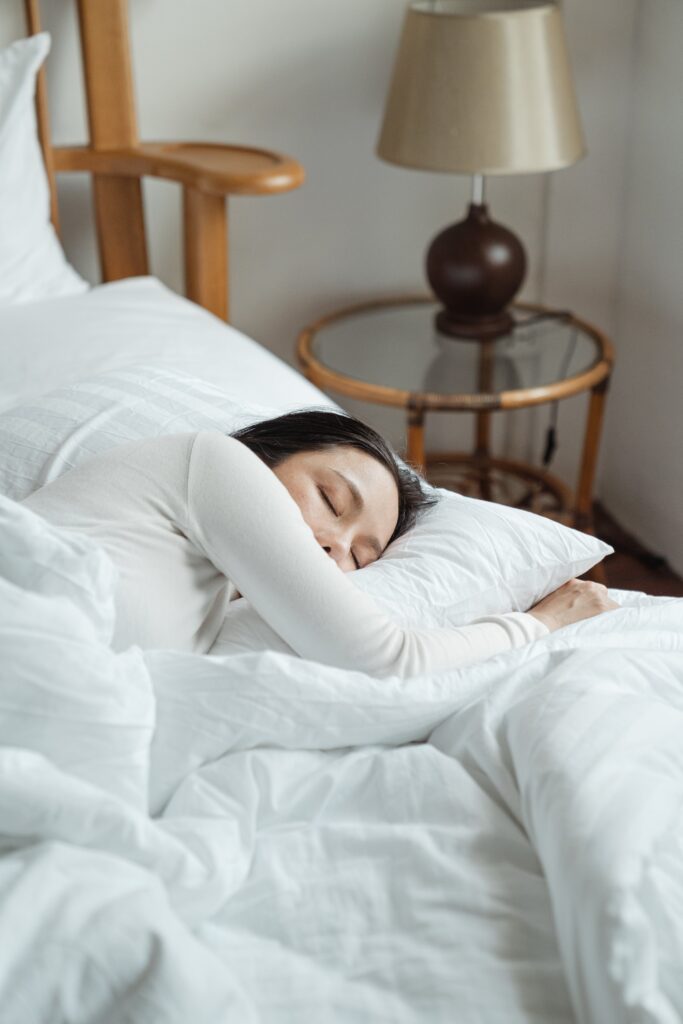In our speedy and demanding lives, stress has turned into a typical friend, frequently penetrating even our most intimate moments — like bed time. Soothing Sleep meditation and managing stress is essential for accomplishing a peaceful night’s rest, and incorporating effective relaxation techniques before bedtime can make a significant difference. Here are six tips to help you reduce stress and promote a peaceful pre-sleep routine:
Meditation:
Meditation is brain and body practices that can assist you in soothing sleep meditation. Mindfulness meditation is the most common way of noticing sentiments, considerations, and feelings without judgment. Body scan meditation is a method of gradually focusing on pieces of the body and seeing any sensations or pains. Guided meditation is the point at which one is verbally directed through a thoughtful encounter and urged to imagine a calming location
Table of Contents
Deep Breathing for Soothing Sleep meditation:
Profound breathing can be one more part of meditation as well as an relaxation technique you can utilize any time. The objective is to take slow, even, and full breaths. However structured practices for deep breathing, including the 4-7-8 method and lion’s breath, you can begin very simply.
Relaxation Techniques:
There are various methodologies for relieving nighttime stress and anxiety before sleep time. A few sleepers utilize only a couple of these relaxation strategies while others practice a blend of them. In the event that pressure and rest are an ongoing concern, your doctor can assist you with figuring out what the best methodology is for you. Doing some gentle stretching, taking a warm bath, and reading are only a couple of thoughts that you might need to have a go at making a piece of your daily nightly routine.
Progressive Muscle Relaxation:
Progressive Muscle Relaxation (PMR) is a relaxation technique involving the tensing and then relaxing of different muscle group. By efficiently managing the body, it helps discharge actual strain. PMR can be a compelling method for loosening up before sleep time. You can find directed PMR meetings on the web or make your own everyday practice by zeroing in on each muscle bunch for a couple of moments prior to delivering the strain.
Fragrant healing and Medicinal oils:
Integrating fragrance based treatment into your sleep time routine can advance relaxation. Natural balms like lavender and chamomile are known for their quieting properties. Think about involving a diffuser in your room or adding a couple of drops of medicinal ointment to your cushion. Notwithstanding, it’s vital for be wary of natural ointments and guarantee they cause no adverse reactions.
Journaling for Stress Delivery:
Putting pen to paper can be a helpful method to unload your thoughts before sleep time. Journaling about your day, writing down things you’re appreciative for, or communicating your sentiments can assist with clearing your brain It’s a personal and customizable practice that can aid in reducing stress levels and promoting a sense of calm. This method is also essential for soothing sleep meditation.
Frequently Asked Questions (FAQ):
Q1: Can meditation really improve sleep?
A1: Yes, meditation, especially mindfulness meditation, has been shown to reduce stress and improve sleep quality. By focusing on the present moment and observing thoughts without judgment, individuals often experience a calmer state conducive to better sleep.
Q2: How long before bedtime should I practice deep breathing?
A2: It’s recommended to start deep breathing exercises at least 10 to 15 minutes before bedtime. This allows your body to shift into a more relaxed state, preparing it for a restful night’s sleep.
Q3: Is it necessary to do all the relaxation techniques mentioned?
A3: No, everyone is different. Some individuals find success with a single technique, while others prefer a combination. Experiment with various methods to discover what works best for you. If sleep issues persist, consult with a healthcare professional for personalized advice.
Q4: Can relaxation techniques help with chronic insomnia?
A4: Yes, incorporating relaxation techniques into your routine can be part of a holistic approach to managing chronic insomnia. However, it’s crucial to consult with a healthcare provider to address any underlying causes and determine the most suitable interventions for your specific situation.
Amjad Mustafa, the owner and author of Keen2Know, is a highly qualified individual with strong experience in technical engineering. He is an experienced professional with a variety of business, technology, and car knowledge. His academic background prepared him for a diverse career and established him as a prominent figure at the intersection of these rapidly evolving industries.
